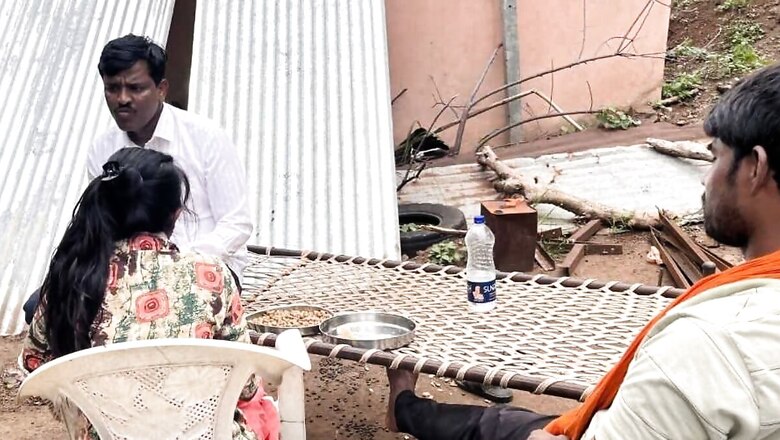
views
Child marriage has become a serious issue in Maharashtra, a state known for the women’s education movement started by Savitribai and Jyotirao Phule. In Beed district alone, authorities have intercepted over 160 child marriages in the last eight months while, since January, police have filed 21 FIRs against parents as well as relatives.
Beed is known as the sugarcane belt by farm workers and, to cut sugarcane, it is always a couple that is preferred and they also receive a good remuneration. Hence, the district has the highest cases of child marriage as compared to others in Maharashtra.
News18 visited Jarud village, nearly 30 km from Beed city, where one such girl fell victim to child marriage two months ago but was rescued by authorities with the help of an NGO. She is 18 and, as per the law, girls must have completed 18 years of age to get married while it is 21 years for men.
The girl lives with her uncle and aunt as after her father’s death, her mother married another person. Her uncle and aunt are workers at a sugarcane farm, so they migrate to Kolhapur district for seven to eight months every year to work in the fields. They are uneducated and did not have a thorough understanding of the law but were under the impression that once a girl turns 18 and a boy 21, they are eligible to be married. The couple themselves were underage when they got married 19 years ago.
The girl said: “I have not completed my basic education as I was not interested. My uncle and aunt are looking after me, but we are poor and, hence, I don’t want to be a burden on them; that’s why I decided to get married.”
The girl was shocked when police reached her wedding venue on June 26. “On the day of my wedding, which was on June 26, police came to the venue and told me that the marriage can’t happen. They told my uncle and aunt that I was yet to complete 18 years. I didn’t understand this and it was an embarrassing situation for me and my entire family. The NGO officers who came with the police spoke to us and told us about the law and why the wedding was stopped. My uncle had spent Rs 2 lakh and we lost all of it, but the wedding did not take place.”
The girl was later sent in for counselling and now wants to study and become a nurse. Her uncle and aunt are also helping her study further.
Maharashtra’s highest number of child marriages in Beed district
Beed superintendent of police Nandkumar Thakur told News18: “It’s a social issue; many times, we come across cases where even educated families do this either due to financial or family reasons. This year till August, we have managed to stop 160 child marriages in the district and have filed 21 FIRs against family members, relatives and people who attend the wedding ceremony. We have even intercepted child marriages in the city.”
“With the help of NGOs and district authorities, we are working on an extensive awareness campaign and even counselling parents. We are seeing results as our local network has improved, especially from where we get our information about such marriages in the district,” Thakur added.
When police get information about child marriages, they take help from NGOs to stop them. Field officers reach the spot and try to intervene at the first stage. Cases are mostly reported from rural parts but there are some instances from the town area as well.
Social workers in this field are of the opinion that there is a need to change people’s mindset as they still perceive girls as a “burden”. Due to child marriage, many girls are unable to complete their education. They said there have been instances when they have also received threats for stopping child marriages.
Tatvashil Kamble, who has been working to stop child marriages for 12 years, said: “Sugarcane farmers do get good remuneration if husband and wife work as a couple in the fields. Hence, many parents are in favour of child marriage, so that they can ask the girl to work with their son and help the family earn more. No one understands that in rural areas, if the girl gets married early and conceives, there is a danger to her or the baby’s life. In the past too, we have seen in many cases that malnourished children are born and later face complex health issues.”
When it comes to India, data from National Crime Records Bureau (NCRB) shows that more than 3,000 cases were registered under the Prohibition of Child Marriage Act, 2006, from 2017 to 2021. A total of 395 cases were registered in 2017, 501 in 2018, 523 in 2019, 785 in 2020 and 1,050 in 2021.
But, the increasing number of cases does not necessarily reflect a rise in child marriages. This may be due to increased awareness that such cases are being reported more.
In Maharashtra, however, child marriage is still a reality looking at how 21 FIRs have been registered in only eight months in a single district. The scenario in the entire state can only be imagined, which should be a wake-up call for the state government.
















Comments
0 comment